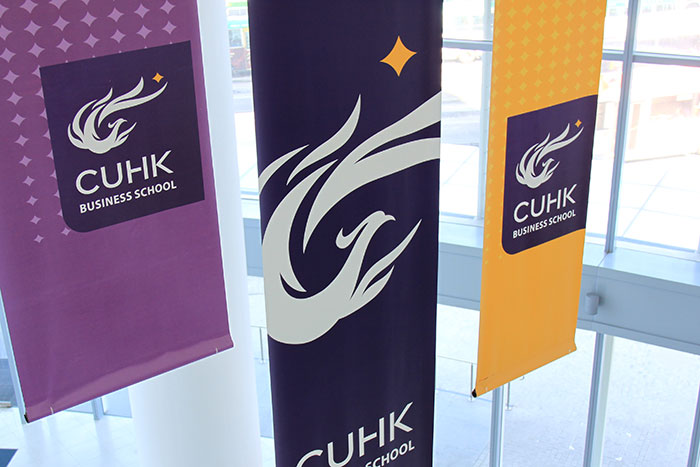MBA Admissions Q&A: CUHK – by TOP MBA

The Chinese University of Hong Kong (CUHK) is one of the biggest names in Asian higher and business education. Founded in the 1960s as the result of a merger between three other institutions, the public university was originally intended to provide Chinese-language instruction in the then British-controlled city state – although this is not so much the case now (the MBA program is delivered in English for one thing).
Hong Kong, of course, gives one direct exposure to the consistent excitement of the Chinese business landscape, while also boasting strong connections to the West, meaning that studying there is a truly global experience. The Western connection means that it is also a less intimidating study environment than other Asian destinations might be for students from the Americas or Europe.
Sound appealing? We spoke to administrative director Lawrence Chan to find out more about the CUHK MBA program admissions process.
What is the typical acceptance rate and the typical ratio of domestic to international students in the CUHK MBA program?
We don’t differentiate between international and domestic students when it comes to admissions and acceptance to our MBA programs. We have very few local applicants who are originally from Hong Kong. 90% of our students are non-local; therefore we apply exactly the same criteria.
I always suggest that students don’t focus on the acceptance ratio but rather on why they want to study at a school, and if they are the right fit. If they do this, they will have a much better chance of being accepted. So don’t make application decision simply based on ratio. Strong candidates will receive multiple offers and then they can choose, while others may never receive one; the ratio means nothing to them!
What is one mistake you see applicants make?
One common and sometimes pretty serious mistake is setting up unrealistic expectations related to changing career. Another common one is putting another school’s name in the statement they sent to me…and maybe vice versa too!
We put a lot of emphasis on career planning. We would like to see evidence of better planning and research about career objectives and what they want to do after the MBA from applicants.
What is something you would like to see applicants do more often?
Again, to be better prepared for their future career plans, taking some measures before starting their MBA to facilitate that change. Many applicants from other backgrounds want to move into the finance industry after their MBA for example. I often advise them that a career change does not take place overnight. They should plan ahead and make some progress with their CFA exams BEFORE the MBA, demonstrating to employers from financial institutions that they possess the necessary technical and managerial skills to move into jobs in the finance industry when they graduate.
What does the CUHK application process look like?
It would be similar to other top schools, everything is done online and we try to reduce the number of required supporting documents rather than asking for an extensive array. Our essays focus on personal development and goals. We put a lot of emphasis on interviews and therefore we would recommend applicants to apply and go through the interviews (if invited). They could even submit their GMAT score later.
What are some of the tests, official documents, and other hurdles that international students must deal with?
Hong Kong is a very open to international applicants; our visa and governmental processes for international applicants are reduced to a minimum. We assist with visa application and accommodation.
How can a candidate overcome a lower GMAT score?
Allow yourself more time to prepare –students who have been out of school for a longer time need to warm up and be prepared to get back into test mode. It is very common that applicants applying to MSc programs (who normally do not require work experience) score higher than MBA applicants. MSc applicants are still students and in the right mindset.
Admissions tips
Essay: Be yourself, tell your story rather than try to copy something from other sources or celebrities.
Interview: Be prepared. Check the facts on the CV and be prepared to answer questions challenging those facts.
Letter of recommendation: Don’t just ask somebody with a good title. They will produce a nice written letter without much substance. It is better to ask somebody who really knows you. We can tell, as they write with their heart.
CV/résumé: Check for spelling errors, be very accurate about the start and end dates of previous roles. Focus on facts and measureable results. Don’t be limited by a conceptual one page CV; control the length but present the best of you.
School visit: Ask to talk to current students – use the precious time to ask questions specifically about your own objectives and goals, rather than factual information that you can always find on a website.
Media: TOP MBA
Date Published: March 25, 2015

